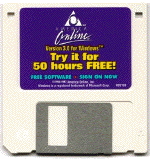
 Fact-checking the death of the open web
Fact-checking the death of the open web 
 The NY Times Magazine has a short but interesting article by Virginia Heffernan entitled The Death of the Open Web. Titles like that make me cringe. Time to explain why.
The NY Times Magazine has a short but interesting article by Virginia Heffernan entitled The Death of the Open Web. Titles like that make me cringe. Time to explain why.
What does it mean? How could you fact-check such an assertion. Was the open web ever alive? If not, how could it possibly die?
If you think it was alive, how do you tell the difference between an alive "open web" and a dead one?
People have said, curiously, that all kinds of things that never lived are now dead. I'd love to ask one of the people to say exactly it means.
Even for things that no one disputes are alive, there are debates about when death occurs. Is it when the living being stops breathing? When its heart stops? When there's no sign of brain function? The problem with each of those tests is that there are people who would have failed such a test who come back to life, who think and speak, move and write.
But with things like the "open web" that are wholly figments of the imagination, that no one even has a good definition of, much less an idea of what it means for it to "live," how do you decide when it's dead?
Bottom-line: Such statements are not verifiable, are meaningless. You couldn't fact-check it.
Reporters take such liberties, at a time when they must defend their value as the only objective fact-gatherers in our society. They even call themselves referees. But then they make up "facts" like this, and there's never anyone to ask a reporter, like you'd ask a politician, to defend an indefensible idea.
 25 years of AOL
25 years of AOL 
 I'm headed south today on the only high-speed train in the US, to suburban Virginia to party with the founders of AOL. They have something to celebrate, the company they started 25 years ago is still here.
I'm headed south today on the only high-speed train in the US, to suburban Virginia to party with the founders of AOL. They have something to celebrate, the company they started 25 years ago is still here.
I was invited as one of the friends of the company, which is quite an honor. The badge I'll wear will be from Living Videotext, the company I started in the same timeframe. It is long-gone, though I'm proud to say that many of its ideas survive.
And it's cool that the northeast is so compact that you can make a ground trip between major cities in two or three hours and return the next day. Very different from the west coast.
 Making stories beautiful, day 2
Making stories beautiful, day 2 
 I'm doing more light work on the Scripting News story template.
I'm doing more light work on the Scripting News story template.
The goal -- to make it look better on an iPad.
I use my iPad to read. Apple has also been taking some hits from Google lately, and amazingly (to me) I'm starting to feel some sympathy for them. I wish tech companies would realize that a small minority of users like the kind of bashing they do. Pretty sure that most of us would prefer to leave the zealotry out of it. It might be like American politics, with the fringe elements, "the base," getting lobbied by incendiary pitches, while the majority who are independent switch from product to product, or maybe use more than one. Reporters like bashing too, makes their jobs easier.
That was something we learned in the old days on the Mac, in the wars between Quark and Aldus. Most professional graphics people used both products. Each had their strengths.
Similarly, I will surely get a Google tablet when it comes out. I'm so interested in this area, I have to be among the first to know what it's like. But the bluster seems so incredibly off-topic. These are just computers, they're not religious causes. At least not to me.
Anyway -- I'm mostly writing this story because I need something to test against the new style sheet. ![]() ">
">
PS: Sometimes it seems there are only two Silicon Valley tech companies: The one formed from the ashes of Sun and Netscape (which is today's Google), and Apple.
PPS: I'm running the new Android release, 2.2, on my Nexus One. I'll be looking for new features on the train trip to DC later today.



